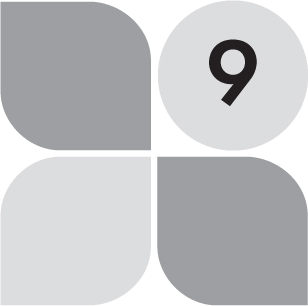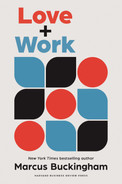
You Are Not Where You’re From
Myshel loves to write. Here’s another snippet from her journal. It’s her looking back on herself during what turned out to be her devastating college years.
___________
I come from a town named Los Banos. It’s a farm town, dairy mostly. I have great friends from LB. My entire Portuguese family settled there and worked the farms and the fields. I love my town.
But I spend my college years denying its existence. In the Mexican restaurant where I wait tables the “Los Banos” sign hangs over the bathrooms. I don’t want to hail from the bathrooms. I find myself hiding my town and my family from my friends.
Kelly is my best friend in college. Born and raised in Orange County. We meet in our Advanced Public Speaking class. She saunters into class on the first day. Chic and sophisticated. Chin-length, super-straight, snow-white hair, in stark contrast to the dark sunglasses that stayed on just a few minutes longer than they should. She wears a pale-pink Chanel flap bag across her high-neck, sleeveless silk blouse. I have never been so close to a designer bag. The cappuccino she’s holding costs more than the consignment sundress I’m wearing.
She has a vibe that’s hard to explain. Like she’s there, but doesn’t have to be.
I am spellbound.
We were inseparable from that day forward, sharing a mutual addiction to food, fashion, and travel. She ate at every restaurant I dreamed of eating at, wore every designer I dreamed of wearing, traveled to every country I dreamed of traveling to. It didn’t matter to her that I had nothing and she had everything. She knew who I’d be if I did.
But she didn’t really know me. I’d hidden most of that. Which is why it was such an odd decision for me to invite her to “road trip it” north, back to my hometown, for my Tia Dorothy’s seventieth birthday.
She jumped at the invite right away. “Yes!” she said. “I love NorCal!”
Crap, I think to myself. Do I tell her where we’re really going? I mean, nobody ever chooses a vacation in the Central Valley. But she’s my best friend, so …
I drive us through the LA traffic, over the Grapevine, and drop us down onto the tip of the I-5 corridor, which is that interminable stretch of California interstate transecting the central San Joaquin Valley between LA and the Bay Area. We stop to add water to my overheated old Honda, then switch drivers, and somehow I immediately slip back.
“OK, we’re on this highway for the next four hours. It’s a perfectly straight road, no curves and only two lanes on each side. First thing you need to know: there’ll be a rest stop every 32 miles. That’s the only turn you’ll ever make. Otherwise just drive straight. On both sides of this long, straight road you’re gonna see fields and orchards of cotton, almonds, stone fruits, lots of citrus, potatoes, berries … you’ll see it all. But the planting systems are weirdly intoxicating and will draw you in. It’s literally row after row of either square systems or hexagonal or diagonal or quincunx systems. It’s crazy science but actually beautiful art, and you’ll get lost in it and could easily end up crashing behind a slow semi-trailer truck … ”
“Who are you and what have you done with Myshel?” Kelly shouts as she climbs into the driver’s seat. “Seriously! You’re the girl that teaches me about makeup and the hottest new restaurants downtown, and now you’re teaching me about cattle ranches and cotton crops? I’m turning around, girl, we need to get you back.”
We continue north. One mile melting into the other.
The sun-soaked orchards flutter past. Old, imperfect red barns watch over freshly plowed fields. Someone inside is making berry jam.
The patterns. I love the patterns. I used to think that the purpose of tractors was to leave their beautiful markings behind for all of us to marvel at. I stare and marvel.
I am ashamed of what I’ve hidden. I judged where I was from. Thought I was that. Thought she would judge that. I’ve pushed it all the way down, and now my best friend doesn’t know me.
She doesn’t know that I am intrigued by the ingredients of homemade Portuguese sausage. That I would spend hours picking just the right combination of pork cuttings and giblets.
Or that I was a super-competitive raiser of champion pigs. I could not only pick ’em, but I was so fixated on the details of nutrition and diet regimen that I’d never fail to turn a squirmy little black piglet into the finest at show.
Kelly doesn’t know any of this about me. I can barely remember myself.
I stare out the window. Cheeks wet.
“It’s the garlic,” I tell Kelly. “We’re coming up on Gilroy. Garlic capital of the US. We’ll be home soon.”
___________
Who are you?
You are a girl. You are a boy. You are trans. You are gender nonconforming. You are Catholic, Muslim, Jewish. You are Reformed. And Spanish. Well, Catalonian. Not Basque. And yes, you’re Arabic, Sudanese from way back, so you’ve been told. You love football, too, but not American football. Only the kicking kind. And only one team: Barcelona! Not a Man United supporter. Not Man City. Barca all the way!
This is who you are. A combination of identity sources—your gender, nationality, race, religion, sexual orientation, your raving fanaticism for this team or that.
And yes, all these sources are valid. Who could deny that your experience of being of a certain race or religion or nationality affects your life significantly, and that the way in which you make sense of this experience becomes woven into your identity.
Myshel was embarrassed by her Los Banos identity and tried to hide it, but you can imagine a world in which she flips this around entirely. A world where she becomes extremely proud of her heritage and wraps her identity up completely within it.
Three of her grandparents came to the US not from the Portuguese mainland, but from the Azores, a small cluster of islands almost a thousand miles into the mid-Atlantic. They are a proudly independent, tough-minded lot, part farmers, part fishermen, part European, part islanders. They are special, these Azoreans, why shouldn’t she be proud to be one of them? Of course she should.
We all should be proud of our heritage.
But be careful. Each of these sources of identity is shared by hundreds of thousands of others. You are one of many female Catalonian Barca fans of Sudanese descent, and while you may thrill to the feeling of everyone coming together to cheer on the Blaugranes in the Camp Nou, when you’re among them you’re merely one of the them. One of the crowd. Monolithic, uniform, one voice.
Where in this crowd is your voice? You have language to describe your gender, nationality, race, religion, loyalties. Where is your language to describe the unique loves and loathes that define your Wyrd?
If you don’t learn the language of your loves, as so many of us do not, then you may well find yourself reaching toward broad symbols—such as race and religion—to define who you are. And when you do that, you may gain strength from what you share with folks of the same race and religion, but if you stop there, you may cut yourself off from the strength that comes from within. The strength of knowing who you uniquely are, where you find love in the world, and how to turn love into contribution.
This love-strength has more power than group-strength.
Love-strength is self-reliant. No one can threaten this strength, because it is always and only derived from who you are, and there is no one else like you. What someone else loves, and how they turn it into contribution, is interesting and cool and charming and useful, but it has no bearing on what you love. It cannot threaten you.
This love-strength is abundant. You can cherish what you love, cultivate what you love, be proud of what you love, and know that you will never be diminishing anyone else, since no one else can ever be you. By tying your identity to what you love, you are not claiming you’re better—or worse—than anyone else. You’re claiming only that you’re different from anyone else. And they, too, are different from anyone else. Difference, like love, is an infinitely abundant resource.
This love-strength leads to openness and curiosity. Group-strength, by its very definition, banishes others outside the group. While you may remain tolerant of these outsiders, tolerance implies distance, separateness, not empathy or intimacy.
Love-strength begins with you taking your own loves seriously, and being deeply curious about how these loves can be channeled in some helpful or productive way. Of course, the more curious you are about your own loves, the more curious—and respectful—you will be about the loves of others. Since your loves are so interesting and so subtle and so specific, so must the loves of others be.
Out will go generalizations about other races, religions, genders, and fans, to be replaced by questions about the loves of this particular person. And this one. And this.
So be cautious about relying on group-strength as the primary source of your identity. While you may be of a certain race and gender, and have a certain religion, and be from a certain place, and support a certain team, you, yourself, are not any of these things. You are you, and the only you there is.
Find interesting what is most interesting about you.
